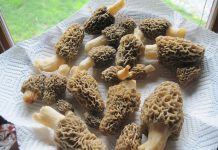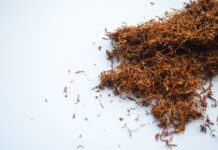“Dad hitched up the horses and told me the farm was my responsibility now. He was going in search of work, for a week, a month, maybe a year. I felt the weight of it all the way to my bones. I had a man’s job. As Pa drove away, my mother cried. I did my best to console her before I headed for the barn to milk the cows. If I didn’t, there would be no breakfast.”
— Abe Smith, 1898
Have you ever given serious thought to the trials and tribulations of scratching out a living in pioneer days? What has always astounded me is how often entire families picked up and moved back in those days, somehow banking on sheer faith that life would be better in a land they had never seen.
The stories I have read of the hardscrabble lives people lead in those rough years always makes me wonder how anyone survived.
The stories written by Ralph Moody, whose parents moved west when he was just a boy, always makes me shudder. The family had been promised a wonderful Colorado homestead, and upon their arrival found a shack with no glass in the windows, dirt and dust piled ankle-deep inside.
Constant worry
Minor illness or major disease, the type that could wipe out an entire family, was always a constant worry. There was nothing easy about daily life, but injuries and illness could complicate everything in one fell swoop.
Suicides occurred at a higher rate among those who headed west for a better life, and I have often wondered if it was sheer embarrassment and deeply wounded pride that caused many to end their life.
The reality of what they had put a family through for a pipe dream that suddenly turned in to a nightmare had to have played havoc with mental stability. Some speculation exists that something as simple as a toothache back then could have brought a man or woman to the brink of ending it all.
No health care
It goes without saying that simple health care could not be found in the middle of the barren prairie. Consider for a moment day after day of horrific pain with no hope for resolution.
Add to that the need to continue the hard physical work of chopping wood, milking the cow, trimming the hooves of the work horses, kneading the bread, butchering a chicken or two, nursing a sick child, all while dealing with incessant, throbbing pain, sometimes accompanied by high fever.
Add to that the tremendous isolation and the suffocating loneliness that surely set in for pioneering families trying to put down roots in the middle of a barren land.
Take for granted
We take for granted such incredible things as neighbors to turn to, water pouring freely from the faucet, ice in the freezer, our lights and heat, even something as simple and wonderful as an electric fan. The thought of trying to survive August’s heat with no reprieve is beyond imagining.
When I interviewed Mabel Heifner several years ago, a wonderful woman from this community who lived to celebrate her 100th birthday and a few years beyond, she told me that young people have no idea what a horrible nuisance dust and mud could be.
“We would sweep constantly, just trying to get the dirt out of the house. Even the very youngest child was taught to sweep. Then the rains would come, and the dirt all came back inside in the form of mud. The streets would turn to muddy slop, the wagon wheels digging in. Every day there was some new challenge!” she said with a laugh.
I think of the much harder laundry and dishes, three daily meals, all of the constant work for our pioneer ancestors.
Grateful
Life is hard for many these days, in many challenging ways, of that there is no doubt. But we come from strong stock, and we have so much for which to be grateful.












